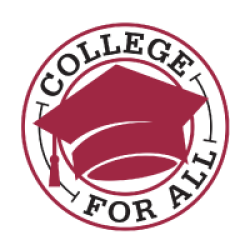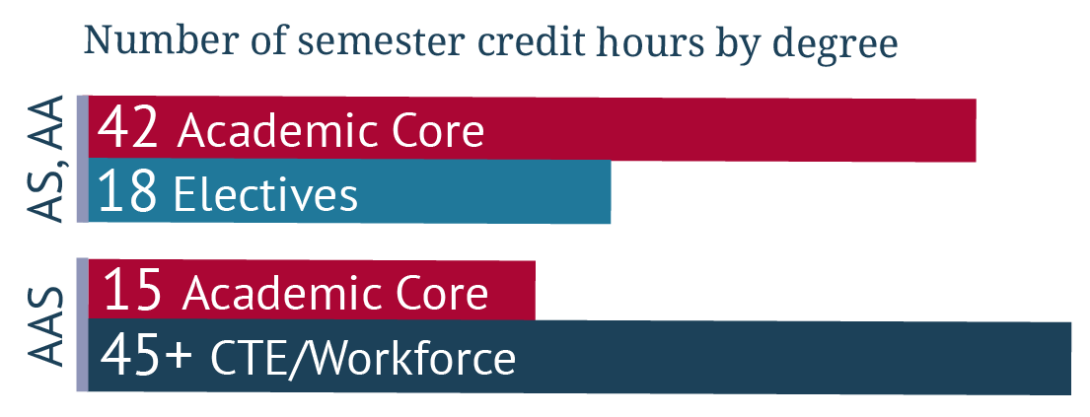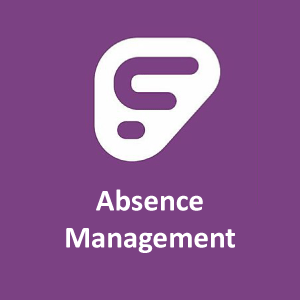


Earn College Credit or Industry Certification
Learn about the different program options for students to earn higher education or industry credentials while in high school.
On this page



College for All
As a district, we are committed to ensuring that all Garland ISD students graduate with college credit in addition to their high school diplomas. Our College for All initiative provides opportunities for every student to earn a minimum of 12 hours of college credit or an industry certification in addition to their high school diploma.

Choice of courses
Students can choose between a variety of course types that will help them gain college credit or industry certifications meaningful to them and their career plans.
Some courses are only available at specific locations. Depending on the program or pathway, courses may be available:
-
As a general course offering at all high schools
-
As part of a Career & Technical Education (CTE) pathway at any high school, only specific schools, or at the Gilbreath-Reed Career and Technical Center (GRCTC)
-
Within selective magnet programs
Types of courses
Expand AllAdvanced Placement (AP)
These are high school courses that offer college-level content and examinations created by the College Board. Students with qualifying scores on the exams could earn college credit. AP college credit is recognized by colleges and universities around the world
International Baccalaureate (IB)
These high school courses are offered by authorized IB World Schools and are designed to develop global thinkers who engage in the Diploma Programme curriculum. These courses are only offered through the Garland High School IB magnet program. Testing criteria is required for application.
Dual Credit (DC)
Dual credit academic courses are designated by the Texas Higher Education Coordinating Board (THECB) for transfer among community colleges and public four-year colleges and universities.
Dual credit workforce education courses are courses that have been designated by the Texas Higher Education Coordinating Board (THECB) as workforce education (technical) courses offered for credit and continuing education units (CEUs).
Students taking dual credit courses of either type are enrolled in a college course and receive simultaneous credit for the course from both the college and high school.
Students are enrolled in
- Two different institutions
- One course
- With one instructor
- Earning one grade
Students earning 15 semester credit hours or more of dual credit academic and/or workforce courses are encouraged to select a field of study or guided pathway to identify course sequencing toward a certificate and/or degree.
Career and Technical Education (CTE)
Career and Technical Education (CTE) courses provide students an introduction to specific career areas and options for further education or immediate employment. These programs offer students the opportunity to earn industry certifications and college credit.
Students can get a head start on college and career
Depending on the course type and program pathway, students have the opportunity to earn college hours, associate degrees, career certifications and/or industry certifications.
Final acceptance and transfer of credit to four year universities depends on the specific coursework and institution requirements. Visit the North Texas Community College Consortium Pathways or the Texas Common Course Numbering System for more information.
What can you earn?
Expand AllCollege hours
Earning even just a few college hours while in high school can represent big financial savings. They can also save time by helping college students advance faster through their college degree plan.
Associate degrees
An associate degree is a college degree that can provide access to entry-level work in a field or provide a boost toward a bachelor's degree. Students participating in an early college high school program have the opportunity to earn one of these types of associate degrees while still in high school.
Both the AA and AS degrees have a high focus on academic core subjects while the AAS degree has more technical and workforce requirements. Students in an AA/AS degree program will take approximately 42 college credit hours in core dual credit courses and 15 college credit hours in elective dual credit courses.
Associate of Arts (AA)
The AA degree is a good choice for students planning a career in fields such as education, history, psychology, economics, business, languages, fine arts, etc.
Associate of Science (AS)
The Associate in Science degree is a good choice for future architecture, engineering, math, science or technical majors.
Associate of Applied Science (AAS)
An AAS degree is generally more focused on a specific career or vocational field and does not necessarily provide students with the required coursework to earn a bachelor's degree.
The AAS degree is only found in P-TECH programs and is considered to be a stepping stone to the workforce.
The requirements for each major in the AAS align with Garland ISD Career and Technical Education (CTE) programs of study. Students working on an AAS degree will take approximately 45 college credit hours in CTE dual credit courses and 15 college credit hours in core dual credit courses.
Students who receive an AAS degree are prepared for the workforce, can continue on to a Bachelor of Applied Arts and Sciences degree or transfer their 15 core college hours into a Bachelor of Arts or Science degree.
Credit hour breakdown

Student courses will have different requirements based on type. Both the Associates of Science (AS) and the Associates of Art (AA) degrees will have 42 academic core credit hours with 18 elective hours. The Associates of Applied Science (AAS) will have 15 academic core instead, along with 45+ CTE/Workforce credit hours.
Industry certifications
Industry certifications are Texas Education Agency (TEA) designated workforce certifications embedded within Garland ISD Career and Technical Education (CTE) courses designed to meet the needs of industry.
A certification is a validation that an individual possesses certain skills, usually related to an occupation and measured against a set of accepted standards. An occupation may have multiple certifications with different levels of expertise. An individual earns a certification by successfully passing a test or battery of tests. Certifications are not administered by an institution of higher education; instead, certifications are administered by a certification body, usually an organization such as a trade association or industry-approved testing entity.
Career certificates
A certificate is a formal award granted by an institution of higher education certifying the satisfactory completion of a higher education program. Upon completion, a certificate is valid without further action on the individual’s part. Certificates are usually awarded in workforce education areas by public and private two-year institutions. In Texas, certificates can have different levels, often based on the number of hours required by the program:
- Level I certificate: awarded for completing a program consisting of at least 15 and no more than 42 semester credit hours.
- Level II certificate: awarded for completing a program of at least 30 but not more than 51 semester credit hours
Level I & II certificates are awards within the Dallas County Community College District's (DCCCD) Career and Technical Program offerings designed to meet the needs of industry and are available to dual credit students. Level I & II certificate 12- 45 semester credit hours programs are available at numerous comprehensive GISD high school campuses, the Gilbreath Reed Career and Technical Center (GRTC), and in most Pathways to Technology (P-TECH) programs.
High school to college course transferability
Seeking to map out your college plan? See what courses give credit by researching course equivalency. We have compiled a list of resources from local higher education institutes below.
Need more? The Texas Common Core website also provides course equivalency checking.
Credit transfer information
Expand All
Magnet programs
Magnet programs offer a concentrated learning plan in a particular focus area. Students must apply and be accepted to magnet programs. The programs are only available at specific schools and may vary somewhat if offered at more than one location.
Three of the magnet programs are considered early college programs. The Collegiate Academy, ECHS and P-TECH programs all offer students the opportunity to earn up to 60 semester credit hours (SCH) of dual credit.
Early college magnet programs
Expand AllCollegiate Academies
-
Minimum academic criteria
-
Associate of Arts (AA) or Associate of Science (AS)
Early College High School (ECHS)
- No minimum academic criteria
- TEA-designated innovative high school magnet program
- Associate of Arts (AA) or Associate of Science (AS)
Pathways in Technology Early College High School (P-TECH)
- No minimum academic criteria
- TEA-designated innovative high school magnet programs
- Workforce and academic semester credit hours
- Industry partnerships
- Associate of Applied Science (AAS), Associate of Arts (AA) or Associate of Science (AS)
- Level I Certificates















